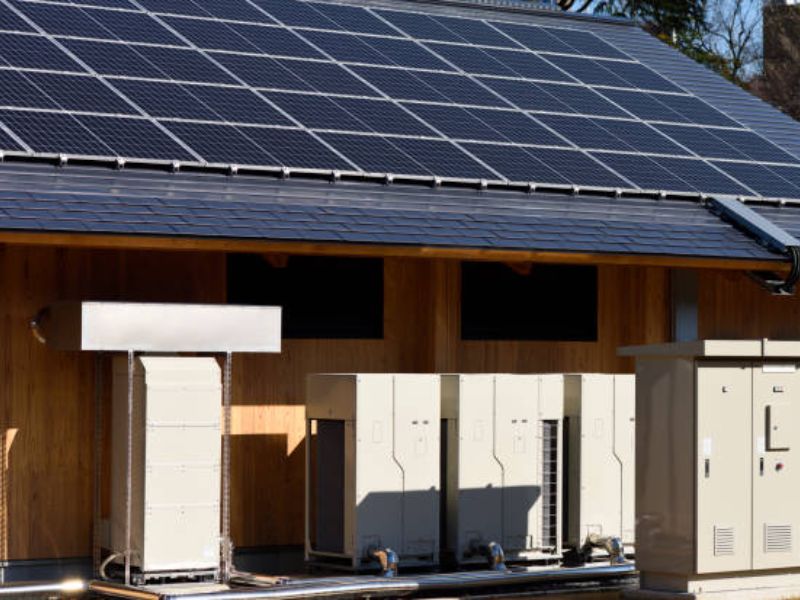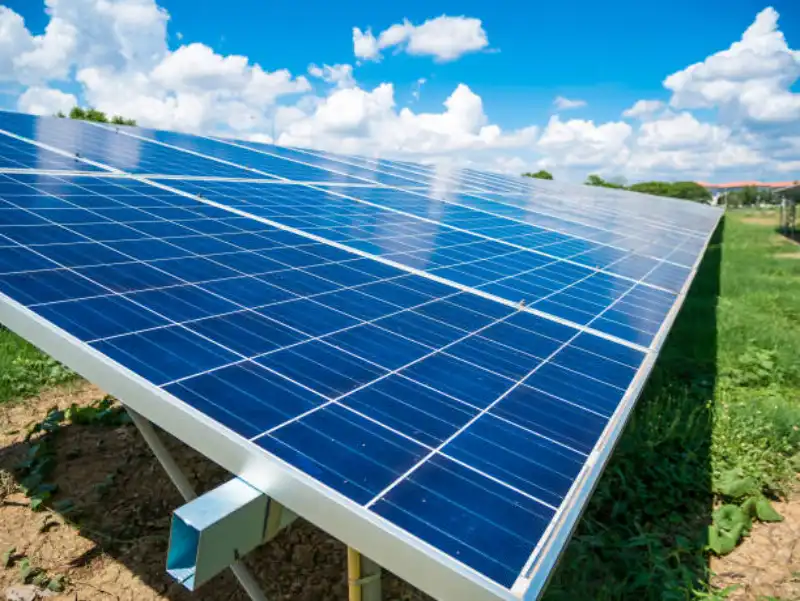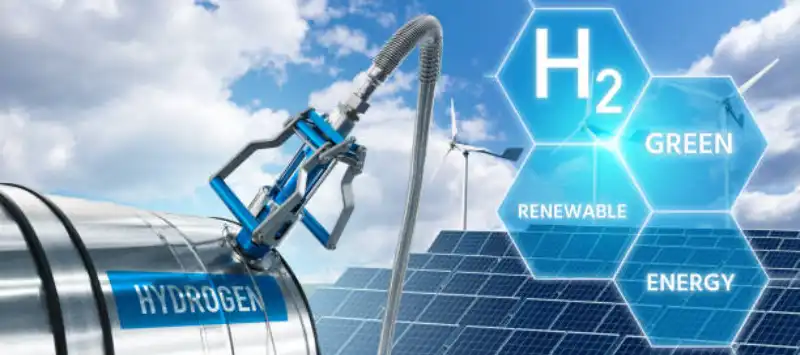A backup power system is a vital home installation that ensures the continued provision of power during unexpected outages. The primary role of a backup power system and generator is to offer emergency power when there is a blackout or a power surge, preventing any disruption to your day-to-day activities. This system ensures your essential appliances such as refrigerators, heating or cooling systems, and servers maintain functionality during such times.
The generator plays a significant part in the backup power system by converting fuel—such as natural gas, diesel, or propane—into necessary electrical energy. It can also serve as your home’s electrical system when there is an interruption of the main power supply. Understanding the essence of a backup power system and the generator’s role ensures the right selection when choosing the best backup power system to meet your needs.

Types of Backup Power Systems
Various types of backup power systems exist that homeowners can choose from, depending on their preferences and needs. The choices range primarily from diesel to solar systems, with each having its advantages and drawbacks. A diesel generator, for instance, is known to be a robust and reliable backup power system. This generator uses a combustion process where it converts diesel fuel into electricity.
On the other hand, a solar system such as the Tesla Powerwall is an energy storage system that stores solar energy during the day for use during the night or during power outages. These systems are sustainable, green alternatives to conventional power sources and are an excellent choice for homeowners who appreciate eco-friendly solutions. Liquid propane and natural gas generators are also options.
Relevant Article: Complete Guide to Off Grid Power System Solution
The choice between these systems depends on factors such as the availability and cost of fuel, installation costs, and personal preferences for renewable energy systems. All these systems form a part of the backup power system and should be considered when on the path to making the right choice.
Generators VS Battery Backup Systems: Pros and Cons
There’s no one-size-fits-all when it comes to backup power systems. Understanding the pros and cons of different types of systems can help you make an informed decision.
| Generators | Battery Backup Systems |
| Reliable power for extended blackouts | Seamless switchover during a power outage |
| Higher wattage capacity for more appliances | Low maintenance |
| Durable | Energy-efficient |
| Wide range of fuels (Diesel, Propane, Natural Gas) | Quiet operation |
| Disadvantages: Noise, maintenance, fuel storage | Disadvantages: Limited power reserve, high upfront cost |
The Role of Solar Panels and Generators in Backup Power Systems
Solar panels and generators play distinct roles in a backup power system. A solar system is an essential part of a sustainable backup power system, with the Tesla Powerwall being a perfect example. During the day, solar panels convert sunlight into electrical energy, which can be immediately used or stored in a battery for later use during an outage or at night.
Generators, on the other hand, like diesel or natural gas generators, are reliable for long-term off-grid cases. Unlike battery backup systems, which have a power limit and can provide power for a few hours, a generator can keep running as long as it has fuel. It’s a great consideration for significant power demands that last for longer periods.

How Backup Power System and Capacity Load Handle Power Surges
Handling power surges effectively is crucial in protecting your home’s electrical system and appliances. The size of your backup power system and the capacity load it can handle are vital in this context. The capacity of a backup power system is often measured in kilowatts (kW), and this must be adequately matched with the energy consumption of your home.
A backup power system’s capacity depends on whether you want to power a few essential appliances during an outage or the entire household. An energy audit can help to estimate the power consumption of your appliances and your home’s total energy needs. This information can then guide the sizing of the backup power system.
What to Consider When Determining Household Energy Needs
When determining your household energy needs, you should consider the following factors:
- Duration of backup power: If your area frequently experiences long power outages, a diesel generator could be the best option, as it can provide power as long as it has a fuel supply. In contrast, battery backups are best suited for short, infrequent outages.
- Energy consumption: High-energy-consuming appliances will need a more robust system, for which a diesel generator might be better suited.
- Environmental Impact: Battery backups, especially those charged with solar systems, have a lower environmental impact compared to diesel generators.
The right choice between a diesel generator and a battery backup depends on these considerations and your personal preferences.
The Cost Factor of Diesel Generators and Batteries
Cost is a significant factor when choosing a backup power system. It’s important to consider not just the upfront cost, but also the long-term expenses. Diesel generators typically have a lower upfront cost but higher maintenance costs over time, including fuel and service costs.
| Backup Power System | Upfront Cost | Long-term Expenses |
| Diesel Generators | $$ | $$$ |
| Battery Backups | $$$ | $$ |
Battery backup systems, such as the Tesla Powerwall, might have a higher upfront cost, but their maintenance costs are generally lower, making them cost-effective in the long run.
Compatibility Comparision with Home Infrastructure
It’s also crucial to consider the compatibility of the backup power system with your home’s infrastructure. A diesel generator often requires an external installation space due to the generator’s size and the fumes it produces. Transfer switches are typically installed to safely switch between main power and generator power.
Battery power systems, however, are more flexible. They can be mounted indoors or outdoors with minimal impact. Systems like the Tesla Powerwall are designed to integrate flawlessly with your home’s electrical system. They are optimized for various home types and can easily be paired with renewable sources like a solar system.
How to Install Backup Power Systems?
The installation of a backup power system involves a series of steps. Diesel generators require a secure outdoor area due to the noise and exhaust fumes they produce. The installation includes setting up the generator, installing a transfer switch, and connecting the generator to the home’s electrical system.
Battery backup systems, on the other hand, require a suitable indoor or outdoor mounting surface. The package also includes an inverter and switchgear to convert DC power from the battery to AC power for home use.
Both installations should be performed by professionals to ensure safety and efficiency.
Legal and Safety Considerations for Installing Power Systems
When installing a backup power system, it’s essential to comply with local regulations. Diesel generators, for instance, must be installed with proper ventilation to ensure that exhaust fumes do not pose a safety risk.
Battery backup systems such as the Tesla Powerwall require adherence to local electrical and building codes as well. It’s necessary to consult with professionals to ensure you meet all the legal requirements and safety protocols.
Lifecycle and Maintenance Requirements of Backup Power Systems
Managing power surges requires understanding the lifecycle and maintenance requirements of your chosen backup power system. Diesel generators often need regular maintenance, including oil changes, filter replacements, and monitoring for potential mechanical issues. This maintenance ensures they can comfortably handle surges and provide emergency power when needed.
Battery backup systems, especially those that use renewable energy like solar systems, have lower maintenance requirements. However, they have a defined lifecycle and may need battery replacement once they reach a certain number of charge cycles.
Options for Polinovel Backup Power Systems
When looking for a reliable and high-quality backup power system, Polinovel‘s lithium batteries stand out as a top choice. As an innovative lithium battery manufacturer with over 15 years of experience, Polinovel integrates extensive research, development, and custom design into its products. Their batteries can serve as direct replacements for lead-acid batteries in a wide variety of applications, from RV and marine systems to solar energy storage. Polinovel offers lithium batteries in different sizes and capacities to meet your specific power needs. You can purchase Polinovel products directly through their website, which offers customized solutions and excellent customer support. For large volume orders, it may be best to contact Polinovel directly to discuss partnership opportunities and customized systems. With their expertise, quality standards, and focus on innovation, Polinovel is an ideal source for advanced lithium batteries to use in backup power systems of all sizes.

Conclusion
Choosing a backup power system is not just about handling surges or maintaining power during outages. It’s about selecting a system that meets your household energy needs, fits within your budget, and is a sustainable solution for the long term. From diesel generators to battery and solar solutions, the best choice is the one that effectively fulfills your requirements while aligning with your values for energy consumption and environmental impact.

